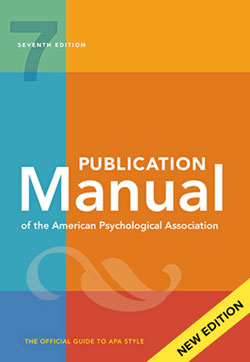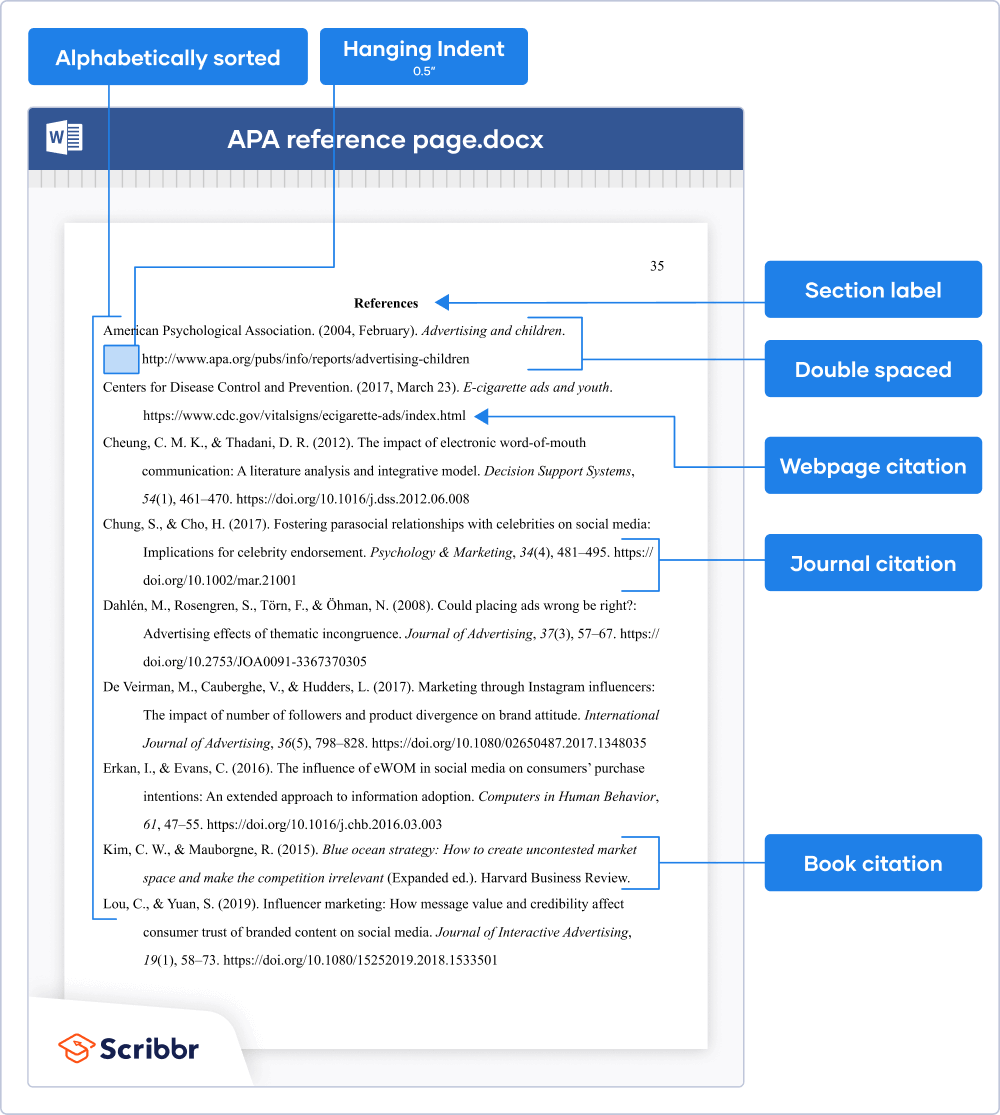How to Cite in APA Format (7th edition) | Guide & Generator

This citation guide outlines the most important citation guidelines from the 7th edition APA Publication Manual (2020). Scribbr also offers free guides for the older APA 6th edition, MLA Style, and Chicago Style.
Generate accurate APA citations with Scribbr
APA in-text citations
The basics
In-text citations are brief references in the running text that direct readers to the reference entry at the end of the paper. You include them every time you quote or paraphrase someone else’s ideas or words to avoid plagiarism.
An APA in-text citation consists of the author’s last name and the year of publication (also known as the author-date system). If you’re citing a specific part of a source, you should also include a locator such as a page number or timestamp. For example: (Smith, 2020, p. 170).
Parenthetical vs. narrative citation
The in-text citation can take two forms: parenthetical and narrative. Both types are generated automatically when citing a source with Scribbr’s APA Citation Generator.
- Parenthetical citation: According to new research … (Smith, 2020).
- Narrative citation: Smith (2020) notes that …
Multiple authors and corporate authors
The in-text citation changes slightly when a source has multiple authors or an organization as an author. Pay attention to punctuation and the use of the ampersand (&) symbol.
| Author type | Parenthetical citation | Narrative citation |
|---|---|---|
| One author | (Smith, 2020) | Smith (2020) |
| Two authors | (Smith & Jones, 2020) | Smith and Jones (2020) |
| Three or more authors | (Smith et al., 2020) | Smith et al. (2020) |
| Organization | (Scribbr, 2020) | Scribbr (2020) |
Missing information
When the author, publication date or locator is unknown, take the steps outlined below.
| Missing element | What to do | Parenthetical citation |
|---|---|---|
| Author | Use the source title.* | (Source Title, 2020) |
| Date | Write “n.d.” for “no date”. | (Smith, n.d.) |
| Page number | Either use an alternative locator or omit the page number. |
(Smith, 2020, Chapter 3) or (Smith, 2020) |
APA references
The basics
APA references generally include information about the author, publication date, title, and source. Depending on the type of source, you may have to include extra information that helps your reader locate the source.
Reference examples
Citing a source starts with choosing the correct reference format. Use Scribbr’s Citation Example Generator to learn more about the format for the most common source types. Pay close attention to punctuation, capitalization, and italicization.
Generate APA citations for free
Missing information
It is not uncommon for certain information to be unknown or missing, especially with sources found online. In these cases, the reference is slightly adjusted.
| Missing element | What to do | Reference format |
|---|---|---|
| Author | Start the reference entry with the source title. | Title. (Date). Source. |
| Date | Write “n.d.” for “no date”. | Author. (n.d.). Title. Source. |
| Title | Describe the work in square brackets. | Author. (Date). [Description]. Source. |
Formatting the APA reference page
The basics

On the first line of the page, write the section label “References” (in bold and centered). On the second line, start listing your references in alphabetical order.
Apply these formatting guidelines to the APA reference page:
- Double spacing (within and between references)
- Hanging indent of ½ inch
- Legible font (e.g. Times New Roman 12 or Arial 11)
- Page number in the top right header
Which sources to include
On the reference page, you only include sources that you have cited in the text (with an in-text citation). You should not include references to personal communications that your reader can’t access (e.g. emails, phone conversations or private online material).
Free lecture slides
Are you a teacher or professor looking to introduce your students to APA Style? Download our free introductory lecture slides, available for Google Slides and Microsoft PowerPoint.
Open Google SlidesDownload PowerPoint
Frequently asked questions
- How do I cite a source with no page numbers in APA Style?
-
When you quote or paraphrase a specific passage from a source, you need to indicate the location of the passage in your APA in-text citation. If there are no page numbers (e.g. when citing a website) but the text is long, you can instead use section headings, paragraph numbers, or a combination of the two:
(Caulfield, 2019, Linking section, para. 1).
Section headings can be shortened if necessary. Kindle location numbers should not be used in ebook citations, as they are unreliable.
If you are referring to the source as a whole, it’s not necessary to include a page number or other marker.
- When should I use “et al.” in APA in-text citations?
-
The abbreviation “et al.” (meaning “and others”) is used to shorten APA in-text citations with three or more authors. Here’s how it works:
Only include the first author’s last name, followed by “et al.”, a comma and the year of publication, for example (Taylor et al., 2018).
- When should I include an access date in an APA citation?
-
APA Style usually does not require an access date. You never need to include one when citing journal articles, e-books, or other stable online sources.
However, if you are citing a website or online article that’s designed to change over time, it’s a good idea to include an access date. In this case, write it in the following format at the end of the reference: Retrieved October 19, 2020, from https://www.uva.nl/en/about-the-uva/about-the-university/about-the-university.html
